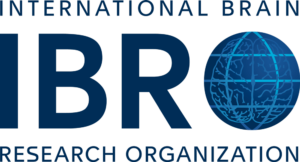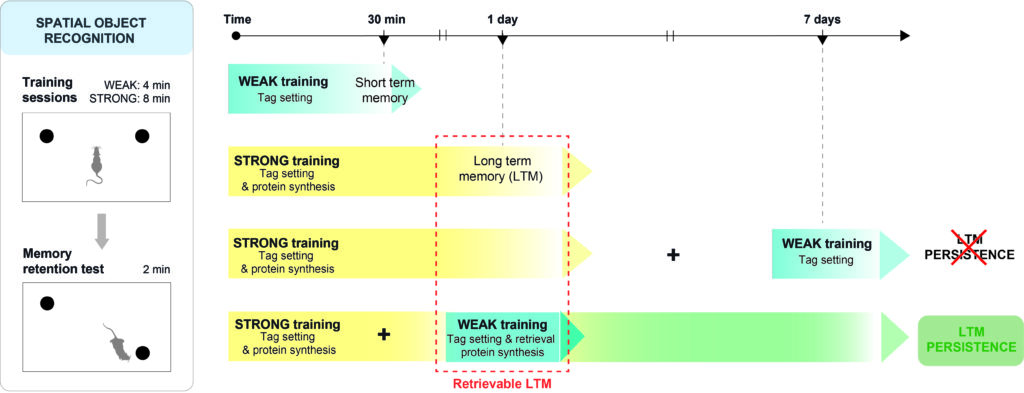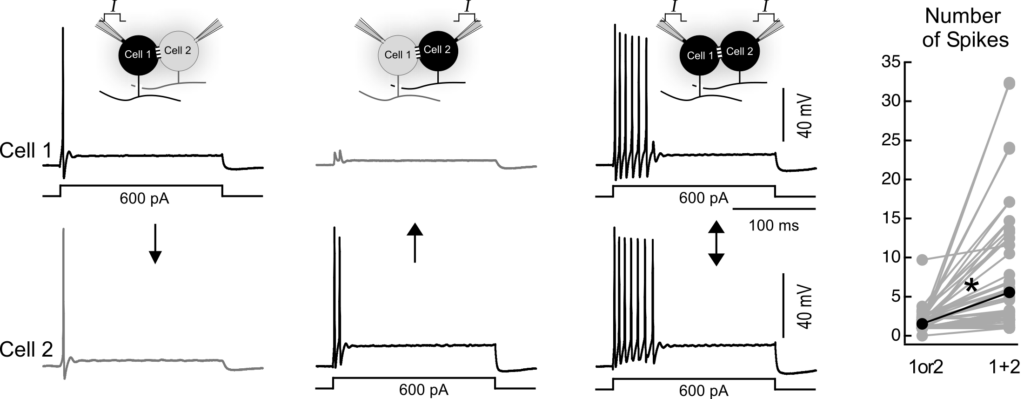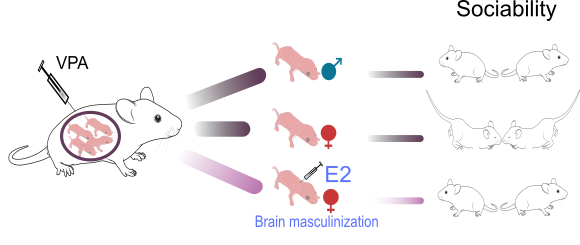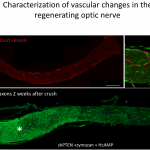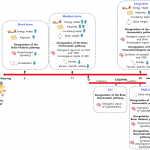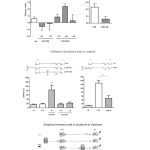Latin America Prizes
There is currently no call for application.

Julieta Correa
Spaced learning and the mechanisms that optimize the persistence of memories
Directrice de thèse : Haydée Viola
Lieu de thèse : Laboratory of Memory – Instituto de Biología Celular y Neurociencias – Buenos Aires – Argentine
My research focuses on studying the processes that promote long-term memory persistence through spaced learning and dissecting the molecular mechanisms of memory maintenance. According to the behavioral tagging hypothesis of memory consolidation, I described a protocol of two training sessions in the spatial object recognition task in rats that resulted in longer-lasting memories. Also, I translated these results into non-invasive strategies to improve learning and memory in elementary-school settings.
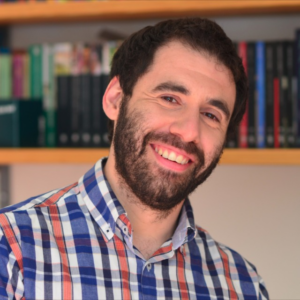
Federico DAVOINE
Plasticity of the electrical synaptic transmission between neurons from the mesencephalic trigeminal nucleus: Mechanisms and functional operations
Directeurs de thèse : Sebastián Curti et Alberto Pereda
Lieu de thèse : PEDECIBA – Universidad de la República – Uruguay
Electrical synapses are found in various regions of the mammalian central nervous system and play a crucial role in essential functional operations, such as synchronization and lateral excitation. The interaction between synaptic and non-synaptic ionic channels drives their operation. My research involves investigating the mechanisms responsible for inducing and expressing the plasticity of electrical synaptic transmission, in mice and rats, through a combination of patch-clamp and computational modelling techniques.

Araceli SEIFFE
Assessment of the cellular and molecular mechanisms of resilience in females in a mouse model of autism
Directrice de thèse : Amaicha Depino
Lieu de thèse : Laboratory of Neurobiology of Autism- IFIByNE (UBA- CONICET) – Buenos Aires – Argentine
I am a postdoctoral fellow at the Laboratory of Neurobiology of Autism at the IFIByNE institute (UBA- CONICET) in Buenos Aires, Argentina. Our research, focuses on understanding how early life events, using the valproic acid (VPA) mouse model of autism spectrum disorder (ASD), can impact social behavior. Notably, ASD shows a gender bias with boys being more susceptible to developing the disorder compared to girls, or girls potentially showing greater resilience. The aim of our work is to identify the mechanisms underlying this gender bias, particularly in relation to the role of the masculinization process. Interestingly, the gender bias observed in humans with ASD is recapitulated in the VPA model, as VPA-exposed females do not show alterations in sociability. Our hypothesis is that the masculinization process is necessary for VPA prenatal exposure to affect autism-related behaviors, as it involves immunological alterations, which we have previously observed in our VPA model.

Dafne MENDES SOARES
Modeling of metabolism and the effect of ion fluctuation in mitochondrial ATP production
Directeur de thèse : Antônio Márcio Rodrigues
Lieu de thèse : Experimental and Computational Neuroscience Laboratory (LANEC) – Federal University of São João del Rei – Brésil
Seizures result in intense ion concentration changes in neuronal tissue, as well as metabolism alterations. The manipulation of metabolic substrates, in turn, has been investigated as a possible line of treatment for epileptic patients. My research focuses on mathematical modeling of ATP metabolism to investigate the connection between metabolic changes and epileptiform activity under the conditions generated by seizures.
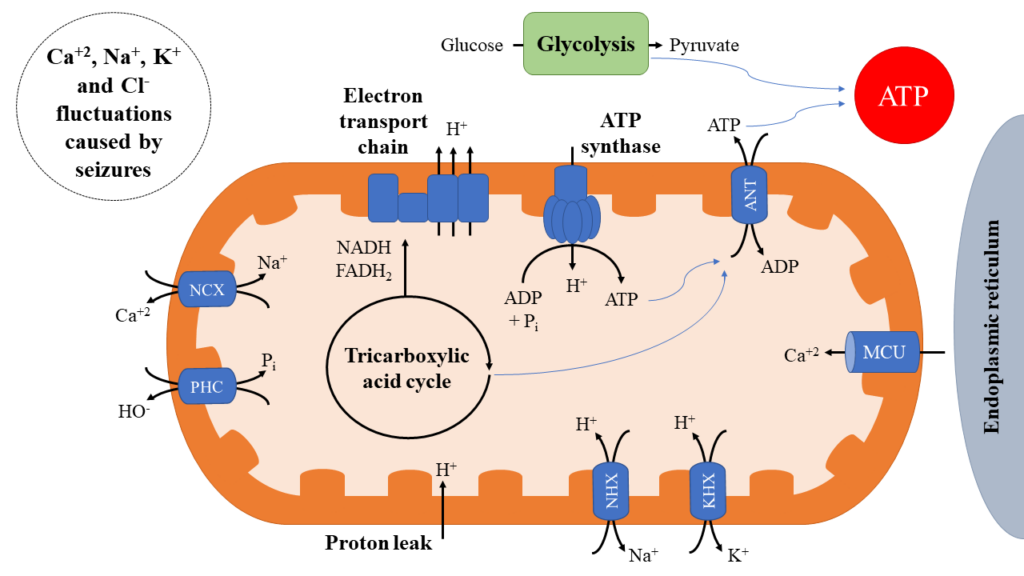
2019

Barbara DA SILVA
The role of blood vessels in axon regeneration
Directeur de thèse : Victor Resende
Lieu de thèse : Laboratório de Neuroquímica – Rio de Janeiro – BRÉSIL
Blood vessels and nerves often run in parallel during development, what reflects their functional and physical interdependency. In a regenerating peripheral nerve, blood vessels play an important role on guiding the formation of the bands of Bügner. Here we investigate the vascular patterning in a model of CNS where axon regeneration can be induced providing insights into role of blood vessels in the CNS regeneration.

Gisela LAZZARINO
Neural mechanisms involved in the control of energy intake: aspects related to the homeostatic, hedonic and neurosteroidogenic pathways
Directeur de thèse : Jorge Guillermo Ramos
Lieu de thèse : Facultad de Bioquímica y Ciencias Biológicas – Ciudad Universitaria – Paraje El Pozo S/N Santa Fe (3000) – ARGENTINA
My PhD thesis provided novel insights into the mechanisms through which ‘junk-food’ feeding disrupts different brain pathways that controls energy intake, at different time periods.I studied the effect of an obesogenic diet in energy intake, evaluating the brain homeostatic, and hedonic systems, and the hypothalamic neurosteroidogenesis. Besides, I evaluated if all these signals were reprogrammed in progeny, as a consequence of the maternal diet.

Pamela LOPES DA CUNHA
Stress can generate memories through the mechanism of behavioral tagging?
Directeur de thèse : Haydee Viola
Lieu de thèse : Laboratory of Learning and Memory, Institute of Cellular Biology and Neuroscience – Buenos Aires – ARGENTINE
I have studied the impact of mild stressors to promote memory stabilization in situations in which learning should lead to transient memories. In rodents, I showed that an elevated-platform (EP) experienced at a specific time close to a weak learning, promotes the formation of long-term memory (LTM) in different tasks. However, the LTM consolidation is prevented by the EP when learning is strong. In humans, I showed that exams can improve or reduce the memory of unrelated information acquired at classroom. These results are consistent with the behavioral tagging hypothesis of memory consolidation.
2017

Bárbara Yael BRAZ (Argentine)

Emiliano MARACHLIAN (Argentine)

Yorka MUNOZ (Chili)

Rodrigo Alejandro SIERRA ORDONEZ (Brésil)

Andrés Martin TOSCANI (Argentine)
2015

Francina Agosti (Argentine)
Fernando Baidanoff (Argentine)
Maria Belen Pardi (Argentine)
Mariela Escande (Argentine)
